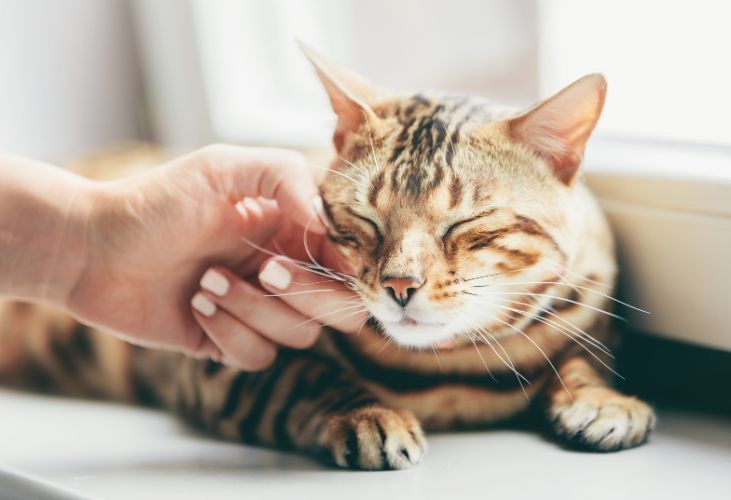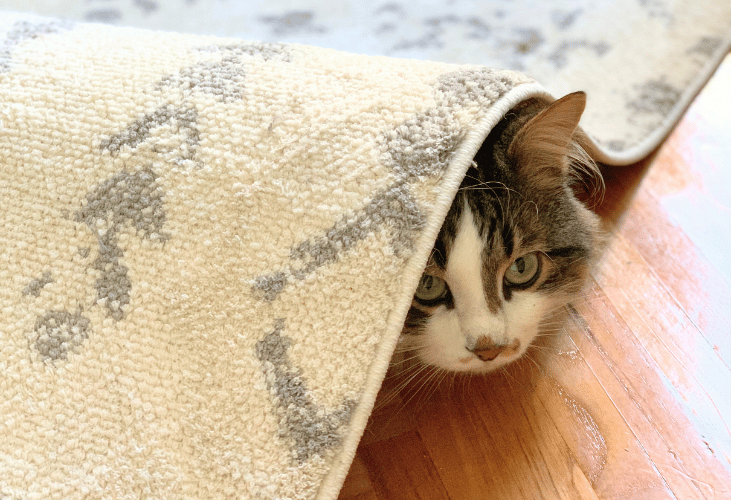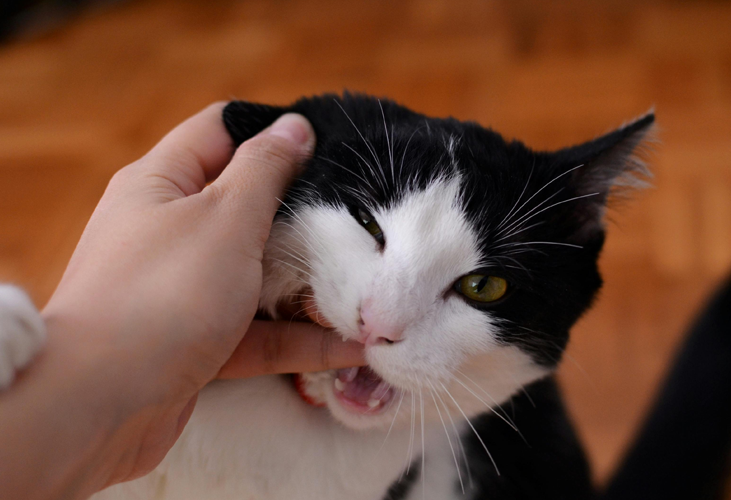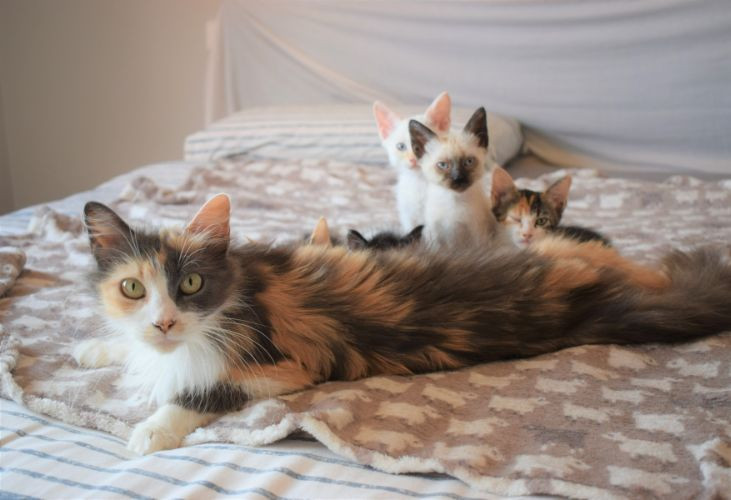The clinical signs of Feline Idiopathic Cystitis include dysuria (difficulty or pain during urination), pollakiuria...

Reasons for Abandoning Cats
Animal abandonment is a pressing issue, and cats are no exception. Despite common beliefs that cats are independent and can adapt to living anywhere, abandoned cats have a very short life expectancy.
While a cat living in a home can live up to 20 years, with an average of around 15 years, a cat born on the street will only live between 4 and 6 years. However, a cat that has been abandoned has a life expectancy of just 6 months on the street.
There are various reasons given by those who abandon cats, and understanding these can help us prevent and mitigate the problem.
Abandonment Due to Misunderstanding Cat Behavior
One of the most common reasons for abandoning cats is behavioral issues. A lack of understanding about cats' natural needs and behaviors often leads people to develop negative relationships with them. These relationships can contribute to behaviors that the owners feel they cannot tolerate. Some of these "undesirable" behaviors include scratching furniture, urinating outside the litter box, or showing aggression. These behaviors often result from poor socialization, lack of environmental enrichment, stress caused by a lack of stimuli, stressful interactions (such as being held against their will, frightened, or consistently made uncomfortable), or undiagnosed health problems. Families that are uninformed about a cat’s needs and expect them to behave like inanimate objects are most likely to cite this reason for abandonment.
Abandonment Due to Changes in Owners' Circumstances
Personal circumstances in a cat owner's life can change unexpectedly, leading to the abandonment of their cats. Factors such as moving, divorce, job changes, financial problems, or even the birth of a baby can significantly affect a person’s ability to care for a cat. Moving to a place where pets are not allowed is a common reason for abandonment, as finding alternative housing solutions for their cat can be challenging or impossible. However, when a person takes responsibility for an animal's life, they must plan for these situations—abandonment should never be an option.
Abandonment Due to Allergies
Allergies to cats are another frequently cited reason for abandoning them. The severity of allergies can vary, and it is worth noting that many cat lovers and owners manage their allergies and coexist happily with their pets. Some allergic individuals even develop a certain immunity to the cats they live with. Severe cases that make cohabitation difficult are rare, and in any case, abandonment is never the solution.
Abandonment Due to Health Problems in the Cat
Cats, like any animal—including humans—can experience illnesses, whether temporary or chronic, throughout their lives. Some conditions may require costly treatments or increased time and dedication, which can complicate cohabitation. However, this should not come as a surprise, and when welcoming a new member into the family, it is essential to anticipate such situations and prepare to deal with them. Friends or family can provide financial support or help with medical care to ensure the well-being of our feline companions.
Abandonment Due to Lack of Knowledge About Cat Care
A lack of knowledge about proper cat care and their specific needs is undoubtedly one of the causes of abandonment. Some people acquire cats without understanding their needs or having received incorrect advice. When taking responsibility for an animal, it is crucial to educate oneself about their diet, exercise requirements, mental stimulation, and veterinary care. A lack of proper information can lead to mismanagement of the cat's behavior and needs, eventually using this misunderstanding as an excuse for abandonment.
Abandonment Due to Economic Factors
Maintaining and caring for a pet involves financial costs, including quality food, accessories, regular veterinary check-ups, and potential emergencies. During times of economic hardship, some families may find it impossible to continue caring for their companion. Unforeseen costs, such as treatments for illnesses or injuries, can be particularly challenging and lead to thoughts of abandonment. Considering these factors before expanding the family is crucial, as is ensuring the ability to handle emergencies if they arise. It is common for people who consider abandoning a cat due to costs to continue spending on other non-essential items, making this argument more of an excuse. Those who genuinely love their pets often find ways to stay together, even if it means temporarily finding another family while seeking a solution.
Abandonment Due to Overpopulation
It is common for some cat owners to choose not to spay or neuter their pets, seeing reproduction as natural. However, when the number of cats becomes overwhelming, they may start abandoning them or giving them to families with the same lack of responsibility, exacerbating the problem.
The Consequences of Cat Abandonment
The most severe consequence is the suffering experienced by the abandoned animal. They may lack access to food, get involved in fights, end up begging or chasing after people, and ultimately die from malnutrition, disease, accidents, or being harmed by someone they approach.
The abandonment of unsterilized cats also contributes to overpopulation, which further worsens the social problem of homeless cats.
Solutions and Prevention
- Education and Awareness: It is the responsibility of those caring for a cat to inform themselves about its needs. Responsible adoption organizations and veterinarians can help ensure this information is as complete as possible. Educating oneself about diet, care, and veterinary needs could prevent many of the issues that lead to abandonment. Additionally, raising awareness and involving administrations, associations, and veterinarians in spaying/neutering and promoting responsible ownership is crucial.
- Economic Planning: A solid financial plan is essential when adopting or expanding the family to ensure that maintenance and care can be sustained. Anticipating fixed costs and potential unforeseen expenses is a way to avoid finding oneself in a difficult situation if a problem arises.
- Role of Associations and Individuals: Carefully selecting adopters based on their capabilities can prevent failures in the adaptation process and reduce abandonment rates. Providing all necessary information to adopters about cat needs is also vital.
- Veterinarians Specializing in Cat Behavior: Finding a professional who can help families understand cat behavior will make it easier to resolve cohabitation issues, thereby preventing behavior-related abandonment.
- Legislation: Implementing policies and laws that promote responsible pet ownership and penalize abandonment can discourage people from deciding to abandon their cats.

















Leave a comment